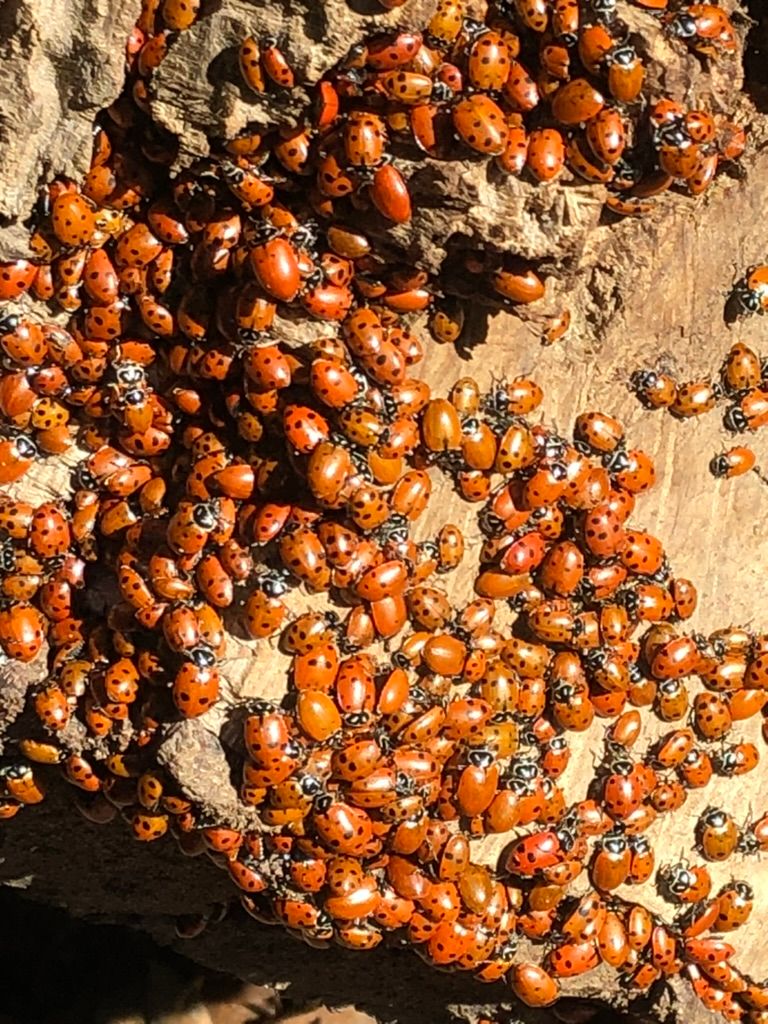Self-Righteousness and Hypocrisy as Cutters in the Tall Poppy Syndrome.

Let him who is without sin among you be the first to throw a stone at her. John 8:7.
In an article in Psychology Today (January 13, 2021) "Righteous vs. Self-Righteous" Leon R Seltzer Ph.D. wrote:
Here, people labeled as self-righteous are negatively identified as characteristically vainglorious and self-deceiving; gratuitously feeling superior; and being arrogant, elitist, and self-aggrandizing (sometimes falling headlong into the pitiable pit of narcissism).
Beyond that, the self-righteous are also regarded as hypocritical in that they employ a double standard when it comes to “right” behavior. Despite their being just as prone to displaying faulty judgment and acting in a blameworthy manner as those deemed righteous, they nonetheless proclaim that their morality is more enlightened and moral than these more pious individuals (sometimes sarcastically described by them as self-righteous “goody-goodies”).
Dante's Hell depicts nine concentric circles of torment. Each level progresses in degrees of wickedness as they move towards the center of the earth where the devil is held in bondage. Level eight is labeled fraud and houses hypocrisy among its holdings.
Perhaps our world leadership in democracy and might makes right ethos makes many American citizens and the US government and its 3 letter agencies purveyors of self-righteousness and hypocrisy. No matter the reason, the U.S. has an abundance of self-righteousness concentrated in bi-coastal large cities, media, Hollywood, educators, politicians, and social movements. Our government is a huge exporter of self-righteousness and hypocrisy.
The United States government has been involved in several instances where it played a role in overthrowing or attempting to overthrow foreign governments. The cases of Guatemala, Iran, and Chile are notable examples from the Cold War era.
Iran (1953): In 1953, the CIA, along with the British Secret Intelligence Service (MI6), orchestrated a coup to overthrow Iranian Prime Minister Mohammad Mossadegh. Mossadegh had nationalized Iran's oil industry, previously controlled by the British-owned Anglo-Iranian Oil Company (now BP). The coup reinstated the Shah of Iran, Mohammad Reza Pahlavi, to power, who ruled as an authoritarian monarch until he was overthrown in the Iranian Revolution in 1979.
Guatemala (1954): In 1954, the U.S. Central Intelligence Agency (CIA) orchestrated a coup d'état in Guatemala to overthrow the democratically elected government of President Jacobo Árbenz. The primary motivation behind the coup was the U.S. government's concern over Árbenz's land reforms and perceived communist leanings. The coup installed Colonel Carlos Castillo Armas as the new leader, marking the beginning of decades of political instability and violence.
Chile (1973): In 1973, the U.S. government supported a coup against Chile's democratically elected socialist president, Salvador Allende. Allende's government had implemented socialist reforms and nationalized several industries, which drew the ire of the U.S. government and multinational corporations. The coup was led by General Augusto Pinochet, who established a military dictatorship that lasted until 1990. During Pinochet's rule, thousands of Chileans were killed, tortured, or disappeared.
These interventions have had long-lasting consequences for the affected countries, shaping their political trajectories and leaving deep scars on their societies. The following are other examples of U.S. involvement in overthrowing or attempting to overthrow foreign governments.
Cuba (1961): In 1961, the CIA launched the Bay of Pigs invasion, an unsuccessful attempt to overthrow Cuban leader Fidel Castro. The invasion involved Cuban exiles trained and supported by the U.S. government. It was a major embarrassment for the U.S. and further strained relations between the two countries.
Dominican Republic (1961 and 1965): In 1961, the U.S. supported a coup against Dominican Republic President Rafael Trujillo, who was assassinated later that year. In 1965, the U.S. intervened militarily in the Dominican Republic during a civil war, aiming to prevent a leftist takeover. The intervention resulted in the installation of a pro-U.S. government.
Brazil (1964): In 1964, the U.S. government supported a military coup in Brazil that overthrew President João Goulart. The coup led to a military dictatorship that lasted until 1985, during which human rights abuses were widespread.
Greece (1967-1974): In 1967, a group of military officers backed by the CIA staged a coup in Greece, overthrowing the democratically elected government. The coup led to the establishment of a military dictatorship known for its repression of political opponents and left-wing groups.
Nicaragua (1980s): In the 1980s, the U.S. government supported Contra rebels in Nicaragua who were fighting against the socialist Sandinista government. The U.S. provided financial, military, and logistical support to the Contras, leading to a protracted and bloody conflict.
Afghanistan (1979-1989): In 1979, the Soviet Union intervened militarily in Afghanistan to support the communist government in Kabul. The U.S., along with other countries, provided extensive support to the Afghan mujahideen (guerrilla fighters) opposing the Soviet-backed government. This support played a significant role in the Soviet Union's eventual withdrawal from Afghanistan in 1989.
It was then that Afghanistan became another Vietnam. We supported the Mujahideen Groups (1989-1992) to counter the influence of radical Islamist groups. The rise of the Taliban (1994-2001), a radical Islamist group, emerged as a powerful force in Afghanistan. The U.S. Embassy Bombings and 9/11 Attacks (1998) by Al-Qaeda, a terrorist group led by Osama bin Laden added another justification.
In October 2001, following the 9/11 attacks, the U.S. and its allies launched a military intervention in Afghanistan to oust the Taliban regime and dismantle Al-Qaeda's terrorist infrastructure. The U.S.-led coalition quickly overthrew the Taliban government and established a new government in Kabul. However, the Taliban insurgency persisted, leading to a protracted conflict.
Biden ended a 20-year war, our longest, in a disastrous and veiled surrender retreat. Abandoned were at least 175 American citizens and 80,000 Afghan allies approved for a "special immigration visa" who were now targeted. During our exit, a telegraphed attack occurred when two jihadist suicide bombers detonated themselves at Abbey Gate, a main entrance to the airport. Thirteen US service people were killed and 90 Afghans.
Biden retaliated by authorizing an airstrike that killed a U.S. aid worker and nine members of his family, seven of whom were children. After weeks of denial the “tragic mistake” became undeniable, and the episode was stealthily disclosed in a news dump. No Pentagon leaders, military brass, or troops were held accountable. Biden remained as quiet as a church mouse.
With self-righteous and hypocritical friends in the U.S. and its agencies, who needs enemies?
The self-righteous are sanctimonious and intolerant and feel morally superior. Underlying this facade is pride, our leading emotion to justify cutting down TPs. The antidote is humility.
It is impossible for a person to learn what he thinks he already knows. Epictetus
Why the self-righteous cannot help themselves so we must keep up the good fight.
Tall Poppy Syndrome Newsletter
Join the newsletter to receive the latest updates in your inbox.



